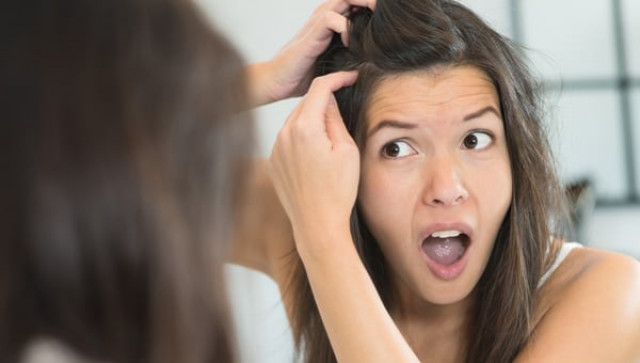11 things you need to know about going grey in your 20s
No need to panic, here's why you're sprouting grey hair way before old age

No need to panic, here's why you're sprouting grey hair way before old age. PHOTO: NEWFASHIONAREA.COM
1. Your body stops producing melanin
The reason your hair suddenly turns grey is because the cells that produce melanin – a pigment found in the hair follicle that gives colour – have stopped doing so, says a New York based dermatologist. Another reason could be the content of hydrogen peroxide in your hair. With age, the enzyme catalyst that breaks down hydrogen peroxide weakens and this results in your hair being bleached grey by it.
 PHOTO: IFUNNY.CO
PHOTO: IFUNNY.CO2. It is genetic
Going grey early is linked to your genes. If your parents and grandparents had premature greying, then you’re likely to experience it too. Dr Michael Eidelman, Assistant Professor of Dermatology at Icahn School of Medicine, says genetics are also responsible for the progress, intensity and shade – white, silver or grey.
8 hairstyles you can rock any season
3. Ethnicity and gender are also major factors
Your ethnic background can also explain why you’re going grey early. Research shows that Asians start getting grey hair in their late 30’s, Caucasians in mid 30’s and African Americans in their 40’s. Your gender also plays a role – men start greying around the age of 30 whereas women start around 35.
 PHOTO: PINTEREST
PHOTO: PINTEREST4. It could be a medical condition
Though greying of hair is a natural process, it could sometimes be due to medical conditions like a vitamin B-12 deficiency, anemia, vitiligo or issues with the pituitary or thyroid gland.
5. Smoking ups your chances of getting grey hair
There is a proven correlation between going grey and smoking, according to studies. One such study found that smokers are two and a half times more likely to go grey early as compared to non-smokers. Smoking is also said to be related to baldness because the chemicals present in cigarette smoke damage hair and cause hair cells to break down, as stated by The New York Times.
9 natural beauty treatments you can find in your kitchen
6. Stress may be involved
There is no research that explicitly states that stress causes premature greying, but stress hormones may have an effect on the melanin-producing cells which could lead to it. According to Dr Eidelmen, stress can cause you to shed hair faster, but it’s unlikely that only the dark ones fall out.
 PHOTO: MEMES.COM
PHOTO: MEMES.COM7. Grey hair is not a sign of a shorter life expectancy
Many people believe that if you develop grey hair early in life, you are likely to have a shorter life span, but that’s not true. There is no evidence to suggest any correlation between greying of hair and life expectancy.
8. Body hair greys later than the hair on your head
Hair on other parts of your body, like chest, arms, or legs, typically grey after the hair on your scalp and at different rates.
 PHOTO: COSMOPOLITAN.CO.UK
PHOTO: COSMOPOLITAN.CO.UK5 ways to bid goodbye to dry skin
9. You can’t reverse it
Once you go grey, you can’t reverse the process or prevent it through creams or vitamins, according to scientific evidence. However, if the greying was because of a medical condition, then it might be resolved by curing the condition.
10. You can hide it though
You can’t reverse it, but you can conceal your grey hair by dyeing it. However, be careful because too much chemical colouring can also damage your hair.
 PHOTO: GIPHY
PHOTO: GIPHY11. You should use a moisturising shampoo and conditioner
The texture of your hair changes once it starts greying. To take care of coarse, dry and brittle hair, dermatologists recommend using moisture rich shampoo and conditioner and staying hydrated. You should also keep heat-styling to a minimum and avoid shampooing every day.
This article originally appeared on HuffPost.



















COMMENTS
Comments are moderated and generally will be posted if they are on-topic and not abusive.
For more information, please see our Comments FAQ